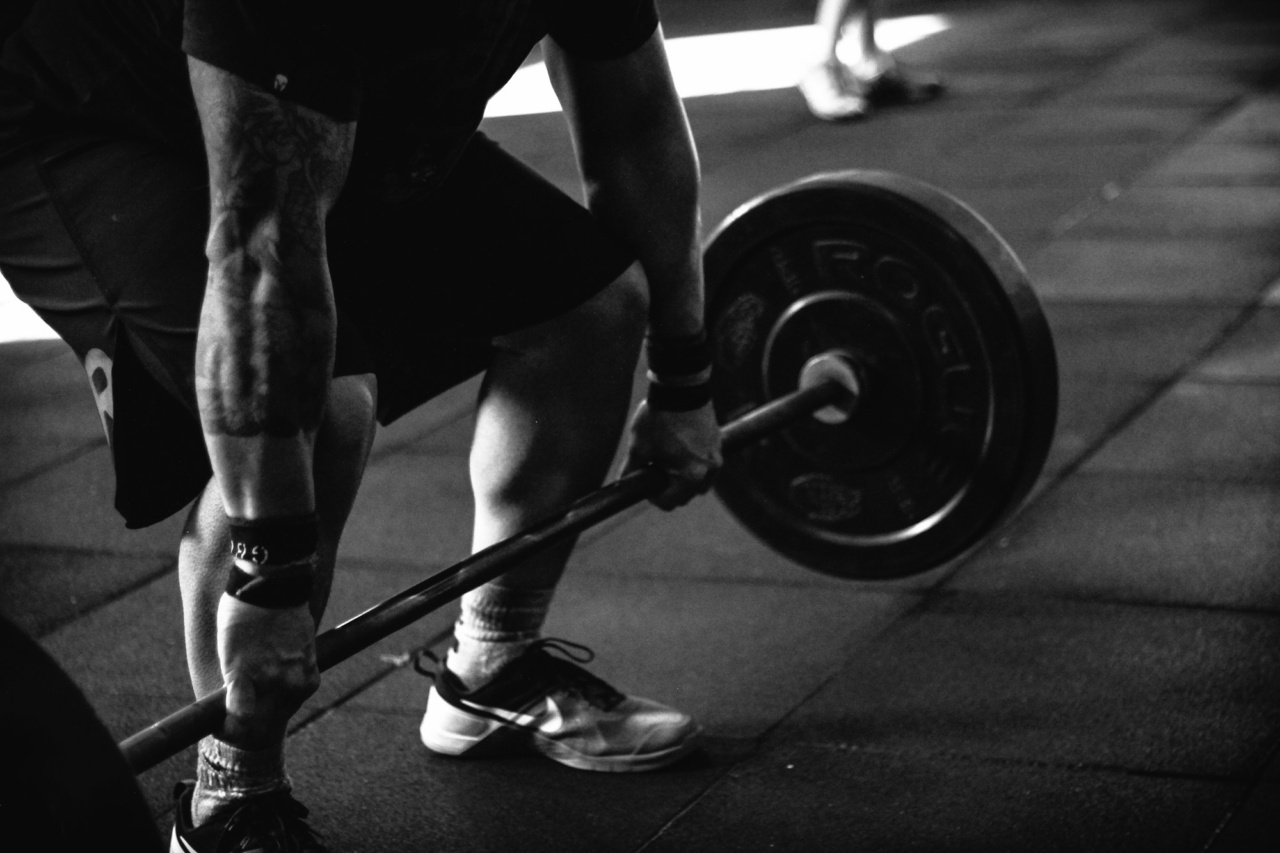Muscle cramps or spasms are uncomfortable and involuntary muscle contractions that can occur in any part of the body. This sudden and intense pain can range from a slight twitch to a severe spasm that lasts for several minutes.
Although muscle cramps are common, they can be quite debilitating, making it difficult to move or use the affected area.
What Causes Muscle Cramps?
Understanding the causes of muscle cramps can be challenging, mainly because there is no definitive answer. Sometimes, the cause can be the result of several factors rather than any one specific event. Some possible reasons for muscle cramps include:.
1. Dehydration
Dehydration is one of the leading causes of muscle cramps. When the body loses more fluids than it consumes, it can lead to dehydration, triggering muscle cramps.
This type of muscle cramp is common in athletes or people who spend a lot of time in hot, humid weather.
2. Poor Nutrition
The lack of proper nutrients, such as minerals, can cause muscle cramps. Potassium, magnesium, and calcium deficiencies are common culprits that cause muscle cramps.
In addition, excessive consumption of alcohol and caffeine can deplete the body’s mineral stores, causing muscle cramps.
3. Overuse or Overexertion
Overexertion of muscles when performing a physical activity, especially for a prolonged period, can lead to muscle cramps. Overuse-related muscle cramps typically occur hours after physical activity has stopped and can be especially painful.
This type of muscle cramp is common in athletes, fitness enthusiasts, and those who lead sedentary lifestyles.
4. Nerve Compression or Injury
Conditions that affect the nerves or nervous system can cause muscle cramps. For example, a herniated disc or an injury to a nerve can lead to muscle spasms and cramps.
In some cases, muscle cramps may be a symptom of a more serious condition such as multiple sclerosis or Lou Gehrig’s disease.
5. Medications
Some medications can cause muscle cramps as a side effect. Medications such as diuretics, statins, and beta-blockers can lead to muscle cramps. In addition, medications used to treat Parkinson’s disease and epilepsy can cause muscle cramps as well.
6. Other Health Conditions
Muscle cramps can also be a symptom of other health conditions such as thyroid disorders, diabetes, or hypoglycemia. These conditions affect the body’s hormone levels, leading to muscle cramps and spasms.
How to Treat Muscle Cramps?
There are several ways to treat muscle cramps. Some of the most effective methods include:.
1. Stretching
Gentle stretching can help alleviate muscle cramps. Stretching the affected muscle can help release tension and encourage blood flow, which can help reduce the likelihood of cramps or spasms. It is best to hold the stretch for at least 30 seconds.
2. Hydration
Drinking plenty of fluids is essential for staying hydrated and preventing muscle cramps. Water is the most effective fluid to drink, but sports drinks can also help replenish minerals that are lost during physical activity.
3. Massage
A gentle massage can help reduce the pain associated with muscle cramps. Massaging the affected area can help promote blood flow to the muscle, allowing it to relax and recover.
Using a topical analgesic can also help alleviate pain and discomfort associated with muscle cramps.
4. Nutrition
Consuming foods rich in potassium, magnesium, and calcium can help prevent muscle cramps. These minerals are essential for proper muscle function and are often lost through sweat during physical activity.
Foods such as bananas, almonds, and leafy green vegetables are good sources of these nutrients.
5. Medications
In some cases, muscle cramps may require medication to alleviate pain and discomfort. Anti-inflammatory medications such as ibuprofen can help reduce inflammation and pain associated with muscle cramps.
Muscle relaxants such as diazepam can also help relax tight muscles, reducing the likelihood of cramping or spasms.
How to Prevent Muscle Cramps?
Preventing muscle cramps is essential for those prone to muscle cramps. Some of the ways to prevent muscle cramps include:.
1. Stretching
Gentle stretching before and after physical activity can help prevent muscle cramps. Stretching helps warm up the muscles and reduce the likelihood of cramps or spasms.
2. Hydration
Staying hydrated is crucial for preventing muscle cramps. Drinking plenty of fluids, especially water, can help keep the body hydrated and prevent mineral imbalances that can cause cramps.
3. Warm-Up and Cool-Down
Warming up and cooling down before and after physical activity can help prevent muscle cramps. A gentle warm-up can help increase blood flow to the muscles, reducing the likelihood of cramps.
Similarly, a cooldown helps release tension and reduce the risk of cramping or spasms.
4. Proper Nutrition
Eating a balanced diet that is rich in nutrients such as potassium, magnesium, and calcium can help prevent muscle cramps.
Foods such as bananas, almonds, and leafy green vegetables are good sources of these minerals and can be easily incorporated into a well-rounded diet.
Conclusion
Muscle cramps are painful and can be debilitating. Understanding the causes of muscle cramps is crucial to preventing and treating them effectively.
By staying hydrated, consuming the right nutrients, and taking preventative measures such as stretching and warming up before physical activity, people can reduce the likelihood of muscle cramps and improve their overall quality of life.






























